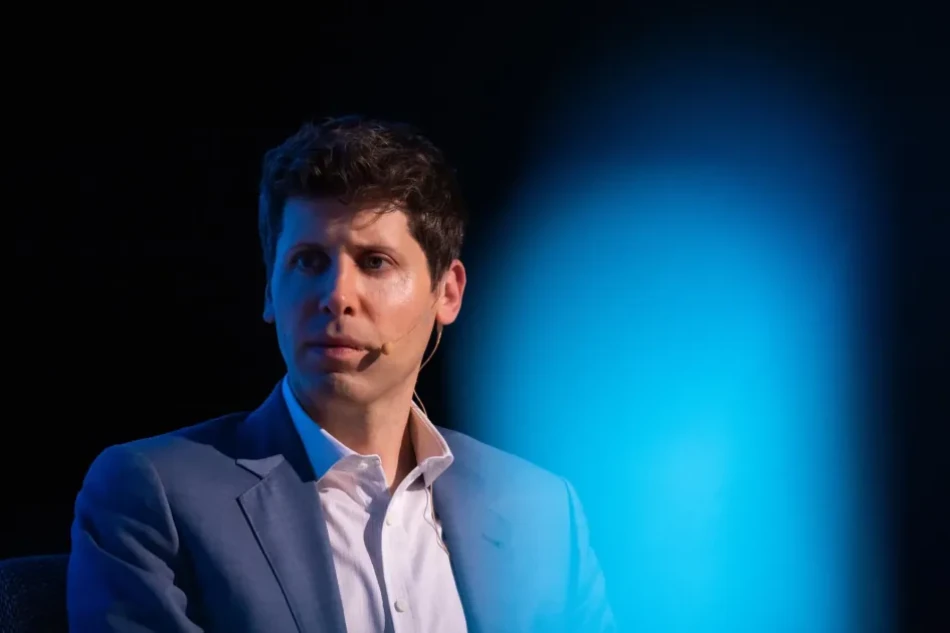
Altman Unveils Ambitious AI Investment: Trillions Poured into Transformative Technology
OpenAI's Trillion-Dollar Gamble: Altman Plans Revolutionary Funding Mechanism for AI Infrastructure
OpenAI CEO Sam Altman has announced plans to spend trillions of dollars on artificial intelligence infrastructure, revealing that the company is developing an entirely new financial instrument to fund this unprecedented expansion. The ambitious spending plan, which dwarfs the recent $500 billion Stargate project, signals OpenAI's belief that current AI investment levels are still dramatically insufficient for the technology's true potential.
Beyond Stargate: A New Scale of AI Investment
In a rare interview with journalists, Altman outlined spending plans that would primarily focus on building data centers in the near term. This revelation comes just weeks after he joined SoftBank's Masayoshi Son and Oracle founder Larry Ellison at the White House to announce the four-year, $500 billion Stargate infrastructure project. However, Altman's latest comments suggest even this massive undertaking represents just the beginning of AI's capital requirements.
The OpenAI chief acknowledged that economists will likely view such spending as reckless, but he remains committed to the vision. His confidence stems from OpenAI's expectation of generating enormous future profits that would justify these extraordinary investments.
Inventing New Financial Tools for AI's Capital Hunger
Perhaps most intriguingly, Altman revealed that OpenAI is designing a completely new financial instrument to fund computing and infrastructure needs—something that has never been created before. This suggests traditional venture capital, debt financing, and public markets may be inadequate for AI's unique capital requirements.
The move mirrors how previous technological revolutions required financial innovation. The railroad boom of the 19th century spawned modern corporate bonds, while the internet era gave rise to new venture capital structures. AI's computational demands may be forcing similar financial evolution.
IPO on the Horizon
Altman hinted that an initial public offering could be part of the funding strategy, though he declined to provide specific timing. The company is currently completing a complex restructuring process that began months ago, likely preparing for eventual public ownership while maintaining its research mission.
Dot-Com Parallels and Market Reality Check
Drawing comparisons to the late 1990s dot-com bubble, Altman acknowledged that both eras featured excessive enthusiasm for transformative technology. He admitted that some AI startup valuations are "crazy and irrational" and predicted investor losses in the sector.
However, he distinguished between individual investment mistakes and the broader technological shift. Unlike many dot-com companies that lacked viable business models, AI is already demonstrating concrete applications across industries—from software development to scientific research to content creation.
ChatGPT's Continued Growth
The discussion also covered ChatGPT's rapid expansion and potential privacy improvements through conversation encryption. These developments underscore the platform's evolution from experimental tool to essential business infrastructure, supporting Altman's argument for massive infrastructure investment.
Strategic Expansion: The Chrome Browser Opportunity
Altman reaffirmed OpenAI's interest in acquiring Google's Chrome browser if U.S. courts force its sale. This potential acquisition would give OpenAI direct access to billions of users and create new distribution channels for AI services, potentially reducing dependence on traditional tech platforms.
Market Implications: Redefining AI Economics
For investors and policymakers, Altman's trillion-dollar vision raises critical questions about AI's economic trajectory. If accurate, current market valuations may actually underestimate AI companies' long-term potential, despite appearing frothy by traditional metrics.
The development of new financial instruments could also democratize AI investment, potentially allowing broader participation in what Altman sees as a transformative economic shift. However, the scale of proposed spending also highlights AI's winner-take-all dynamics, where only companies with access to massive capital can compete effectively.
Altman's bold predictions reflect a conviction that artificial intelligence represents not just another technology cycle, but a fundamental reorganization of how computational power is created, distributed, and monetized. Whether his trillion-dollar bet pays off will likely determine not just OpenAI's future, but the entire trajectory of the AI revolution.
Most Viewed News

 Omar Rahman
Omar Rahman






